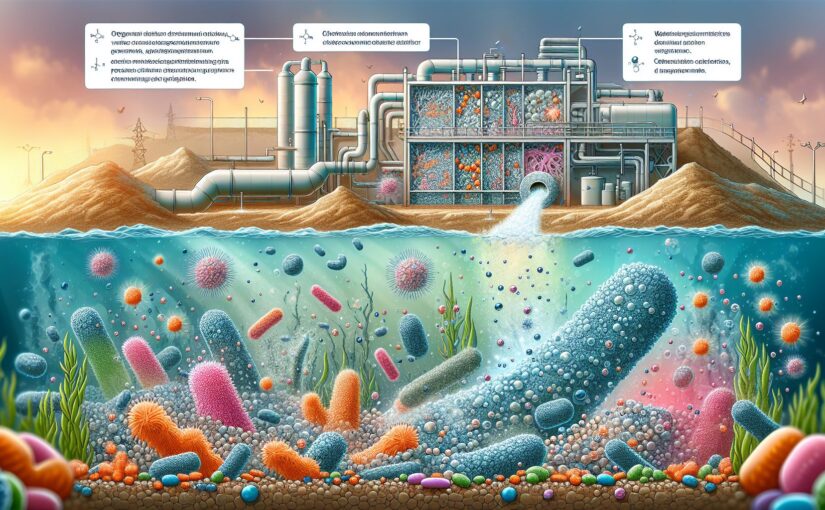One of the significant aspects of modern wastewater treatment systems lies in their ability to degrade several organics found in the wastewater substrate, thereby neutralizing them and rendering the wastewater safe for discharge or even reuse. Wastewater substrate degradation makes use of various biological, chemical, or physical processes to break down harmful substances into less harmful or non-toxic components. This article aims to shed light on wastewater substrate degradation and its relevance in contemporary wastewater management systems.
Biological Substrate Degradation in Wastewater Treatment
Biological wastewater substrate degradation employs specific bacteria and other microorganisms to degrade the organic matter present in the wastewater. These microorganisms feed on the organic compounds, breaking them down into simpler substances without causing environmental harm. Recent studies have shown that using bacteria with higher metabolic rates can speed up the degradation process and thus enhance the efficiency of the wastewater treatment systems[^1^].
Anaerobic Degradation Process
For wastewater with high organic loadings, the substrate degradation process often happens under anaerobic conditions, i.e., in the absence of oxygen. This type of degradation process is a significant part of the treatment of industrial wastewaters. Anaerobic degradation not only contributes to the removal of wastewater pollutants but also aids in the reduction of sludge and the production of valuable byproducts, such as biogas[^2^].
Advanced Substrate Degradation Techniques
With the growing demand for effective wastewater treatment, several advanced substrate degradation methods have been developed. These include methods like Fenton’s reagent, advanced oxidation processes (AOPs), electrochemical oxidation, and photocatalysis, among others. These processes use chemical reactions to escalate the degradation of organic compounds in wastewater[^3^].
Understanding wastewater substrate degradation is crucial for developing and improving wastewater treatment technologies. It also plays a vital role in turning wastewater treatment into a resource recovery process, producing valuable byproducts while ensuring the safety of our water resources.
While wastewater substrate degradation may seem like a complicated process, it represents an essential pillar of our efforts toward sustainable wastewater treatment. By continuously researching and improving these processes, we can hope to achieve more efficient, effective, and environmentally friendly wastewater management solutions in the future.
[^1^]: J. K. Seo, M. K. Cho, and Y. M. Lee, “A study on the enhancement of the decomposition of organic substrate in wastewater treatment,” Desalination, vol. 223, pp. 449-455, 2008. Available: link
[^2^]: K. Vijayaraghavan, U. Srinivasan, and C. Balasubramanian, “Recent advances in the anaerobic degradation of wastewater sludge,” Bioresource Technology, vol. 128, pp. 745-751, 2013. Available: link
[^3^]: M. Dionysiou, H. Hiskia, and H. Papaconstantinou, “Assessment of the advanced oxidation processes for the degradation of wastewater pollutants,” Journal of Molecular Catalysis A: Chemical, vol. 366, pp. 1-11, 2013. Available: link
